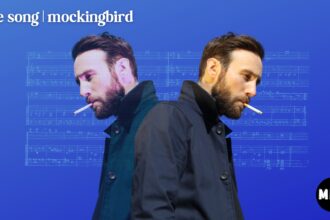“Forgive me is all that you can’t say,” sings Tracy Chapman on “Baby Can I Hold You.” Which is ironic because these are the exact words she wants to hear from Nicki Minaj after Minaj sampled this very song without Chapman’s permission. Tracy Chapman takes aim at mixtape culture and makes Nicki Minaj pay for leaking “Sorry” in Dodson’s new piece.
Nicki Minaj was known for pushing musical boundaries and collecting envelopes full of mixtape money well before she started releasing albums. Now after two years of legal wrangling, Minaj has decided to settle up with Tracy Chapman up in a way that did everything but admit Minaj was wrong in the way she recorded, released, and defended the song “Sorry” which was originally planned for Minaj’s 2018 album Queen.
As a result, Minaj has to hand over a $450,000 envelope of cash (and possibly cover the legal fees) to Tracy Chapman for possibly going too far in bending the definition of artistic license but definitely going too far with her promotional pressure.
The problems all started with the way Minaj asked for permission to use one of Chapman’s songs. If Minaj were a true fan of Chapman’s trying to pay homage, Minaj would have been privy to the fact that rarely does Chapman let other artists sample any of her work. Minaj is not that well versed in Chapman’s catalog but some producer did catch her ear with “Baby Can I Hold You” and soon the melodic foundations of “Sorry” were in place.
Once the song was recorded, it was only then that Minaj the Mixtape Madam went and asked for permission to use Chapman’s song. Chapman adamantly denied this request several times.
Minaj probably did not help the cause by trying to put public pressure on Chapman by tweeting, “I’m torn, y’all help. Tracy Chapman, can you please hit me. omg for the love of #Queen” just days before the album’s release. At that point, negotiations were a year old. Per court filings, Nas contacted Nicki in 2017 wanting her to record some vocals for a new take on an old song called “Sorry.” Minaj claims she recognized the tune as being released by Shelly Thunder. Problem was, Thunder’s “Sorry” was merely a reggae twist of Chapman’s “Baby Can I Hold You.” To not find out who actually would be needed to clear the rights was just one of many missteps by Minaj.
Once Minaj was denied the rights to use the song, and it was withheld from the Queen release, Nicki went on to premiere the song live on Funkmaster Flex’s New York City radio show. If Minaj and Nas would have canned the song, there would be no issue. But once it was used as a promotional tool, Chapman had to act to protect the rest of her catalog. Her lawyers called Minaj’s leak of the song “indisputably willful” while noting none of the other merits of the case at hand.
Chapman said after accepting the $450,000 offer of judgment from Minaj, “I am glad to have this matter resolved and grateful for this legal outcome which affirms that artists’ rights are protected by law and should be respected by other artists. I was asked in this situation numerous times for permission to use my song; in each instance, politely and in a timely manner, I unequivocally said no. Apparently, Ms. Minaj chose not to hear and used my composition despite my clear and express intentions. As a songwriter and an independent publisher, I have been known to be protective of my work. I have never authorized the use of my songs for samples or requested a sample. This lawsuit was a last resort—pursued in an effort to defend myself and my work and to seek protection for the creative enterprise and expression of songwriters and independent publishers like myself.”
Minaj says she only offered the settlement because a trial would cost more. Nicki did not deny most of the facts or arguments offered by Chapman’s lawyers. There was a previous judge’s ruling that stated Minaj had not violated copyright law by the act of recording. It was the release that caused the biggest issue with the court. Minaj’s legal team were apparently unwilling to navigate the issues of whether the leak of “Sorry” violated Chapman’s rights all the way to trial. The Teaser by Flex read, “Shhhhhhh!!!! TONIGHT 7PM!!! NICKY GAVE ME SOMETHING!!! @nickiminaj ft @nas !!! (NOT ON HER ALBUM!) GONNA STOP THE CITY TONIGHT!!!!!!!!!!!!!” That social media message attracted thousands of listeners, and recorders, which caused Chapman’s team headaches when filing takedown requests starting with the station’s own Instagram account.
It was an easily winnable copyright infringement case according to Chapman’s lawyers. Per their filed summary motion, “Ms. Maraj violated Ms. Chapman’s copyright by creating an illegal derivative work and distributing that work. Moreover, these actions were indisputably willful. Ms. Maraj had knowledge of the illegality of her actions and proceeded. Thus, Ms. Chapman’s copyright claim is appropriate for summary judgment.”
Minaj’s legal team countered, “[I]n the process of creation, no one approaches the original songwriter (the ‘rights holder’) for a license to experiment,” states Minaj’s court brief. “The musicians just experiment. If something works, and the recording artist wants to release the song commercially, then the record label, managers, and attorneys get involved and seek the required permission. If it is granted, the recording is commercially released. If permission is denied, the recording is discarded; no one is harmed, and the experimentation begins anew. Recording artists require this freedom to experiment, and rights holders appreciate the protocol as well. Often, the rights holder does not want to simply approve use in the abstract—i.e., ‘any hip hop version of your song.’ The rights holder wants to hear the actual version before giving her permission… The plaintiff here, Tracy Chapman, wants to turn this process on its head.”
By turn on its head, he means that any mixtape release will have to go through a rights clearing process. No longer will rappers be able to just drop an unofficial remix over another producer’s beat. There could be no sampling such as the Grey Album by Danger Mouse without a ringer of a legal process that would stifle all of the creativity that made that smashup hit possible.
On the other hand, I cannot reject the idea. Mixtapes were a largely underground creation that has made its way to the mainstream. It was also a way to avoid dishing out royalty checks to some of the original artists that carried some of those mixtapes sold from the trunks of beat-up Pontiac’s that wanted to be Coupe De Ville’s. Most of the mixtape microphones get just a small portion of the money from those sales, sure. They still perform those hits built on the backs of better-known artists during tours. They gain more notoriety. In most all cases in all industries, it is understood: the O.G. should get their piece.
U.S. District Court Judge Virginia Phillips ruled “Sorry” made fair use of copyright because it was basically pure of purpose. As the brief puts it, “Indeed, creativity would be stifled, were artists required [to] seek and pay for a license before even experimenting with a work.” That leaves some wiggle room for creators like Danger Mouse, Nicki Minaj, and all the electric artists borrowing old songs from dusty albums.
Minaj’s legal team offers a brief glimpse into what a non-lawyer might term a flimsy defense considering how Nicki handled the song. They argued “the creation of a derivative work for the limited, private purposes of artistic experimentation or securing the copyright owner’s consent for broader distribution has precisely zero impact on the commercial market for the original work…” They failed to mention how the song was released and under what circumstances. That can be fought by some musicians who care for a trial. Minaj and Chapman were happy to call it a day at approximately half a million considering expenses. Still, Minaj stuck to her story and tried to give a cold warning to other artists that any legal loss for her on this subject, “should send a shiver down the spine of those concerned with the entertainment industry.”
In the end, Nicki got her song out sort of and got a promotional bump to help album sales. Chapman got a settlement that is considerable, substantial, and on the measure with many other royalty deals. If someone tries her again, she has the funds to go to trial. Chapman got paid and made a statement by taking a stand against these promo drops that ride on the backs of other artists who have not consented to their work being used. Nicki learned it is at least half a million dollars cheaper to write your own songs. Not that Nicki Minaj cares too much. The promotional ploy worked.
And let’s not forget, she was getting $50,000 for a verse with no album out.






